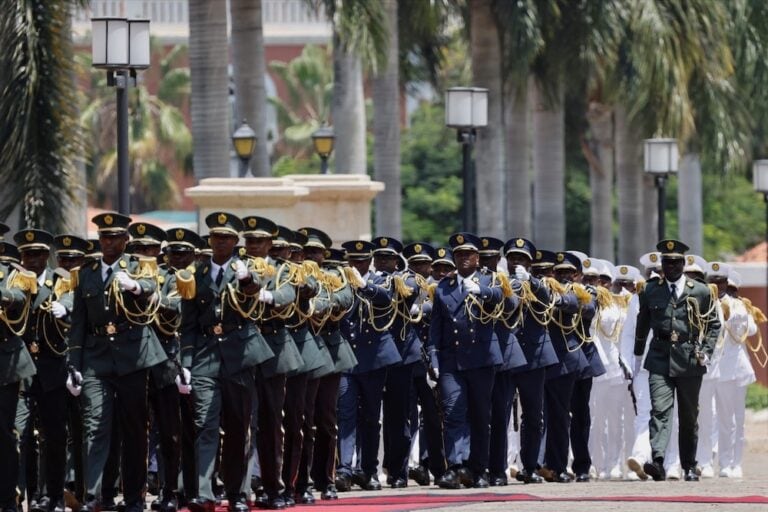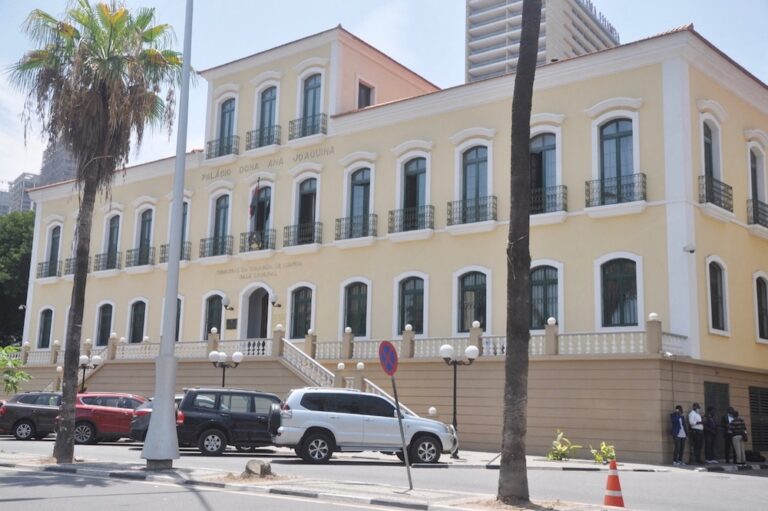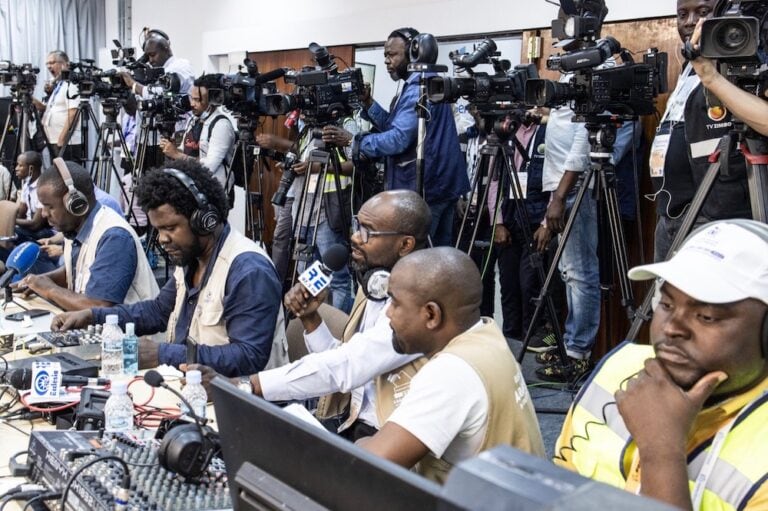**Updates IFEX alerts of 7 and 6 March, 22 February and 13 January 2000, 17 December, 30, 25, 16, 3 and 2 November, 28, 22, 20, 19 and 18 October 1999** (CPJ/IFEX) – The following is an 8 March 2000 CPJ news alert: ANGOLA: MARQUES LAWYERS WILL OFFER “TRUTH DEFENSE” IN TOMORROW’S TRIAL New York, […]
**Updates IFEX alerts of 7 and 6 March, 22 February and 13 January 2000, 17 December, 30, 25, 16, 3 and 2 November, 28, 22, 20, 19 and 18 October 1999**
(CPJ/IFEX) – The following is an 8 March 2000 CPJ news alert:
ANGOLA: MARQUES LAWYERS WILL OFFER “TRUTH DEFENSE” IN TOMORROW’S TRIAL
New York, March 8, 2000 — Defense lawyers for Angolan free-lance journalist Rafael Marques, whose trial on defamation charges begins tomorrow in the Supreme Court, will raise both substantive and procedural arguments for dismissal, according to CPJ’s sources in Luanda. Marques is the defendant in a lawsuit brought by President José Eduardo Dos Santos.
On the procedural front, defense lawyers will seek to nullify the proceedings on the grounds that neither Marques nor his two codefendants have been duly instructed of the charges that they face. In particular, the prosecution has never specified what part of Marques’ writings are allegedly libelous. Nor do the charges specify the legal provisions under which the three defendants are being charged.
If this argument fails, Marques is expected to offer a detailed explanation of his writings, in order to support the argument that his work was intended solely to criticize the political behavior of Angola’s ruler, and that no opinion was expressed about Dos Santos’ moral behavior as an individual. In other words, Marques’ criticisms were directed at the president’s performance of his public duties, and not at his honor as a private Angolan citizen.
In blaming widespread corruption and incompetence in the Angolan administration on President Dos Santos’ leadership, Marques was simply exercising his constitutional right to express political opinions. In the unlikely event that the president accepts Marques’ explanation, the trial will be over.
If the president does not accept Marques’ explanation, the defense is expected to argue that Marques’ descriptions of the president’s corrupt and incompetent administration are not libelous because they are true. The defense will submit as evidence, among other items, many writings of President Dos Santos in which the plaintiff denounces corruption in Angola, and ask that he take the stand to testify on the issue. In the even more unlikely event that the president agrees to testify, he will also be asked to comment on the verbal abuse of Marques by several government officials, and to state whether he condones these attacks.
Angolan legal experts say it is doubtful that the court will accept this “truth defense,” since Angolan press law forbids defense by truth when the plaintiff is the president. The defense may then argue that this provision is incompatible with the Angolan Constitution as well as Article 19 of the Universal Declaration of Human Rights, which states that everyone should have the right to freedom of expression and access to information. At the very least, truth must be a defense in the case of writings that address the president’s political behavior and performance, as opposed to his personal life.


